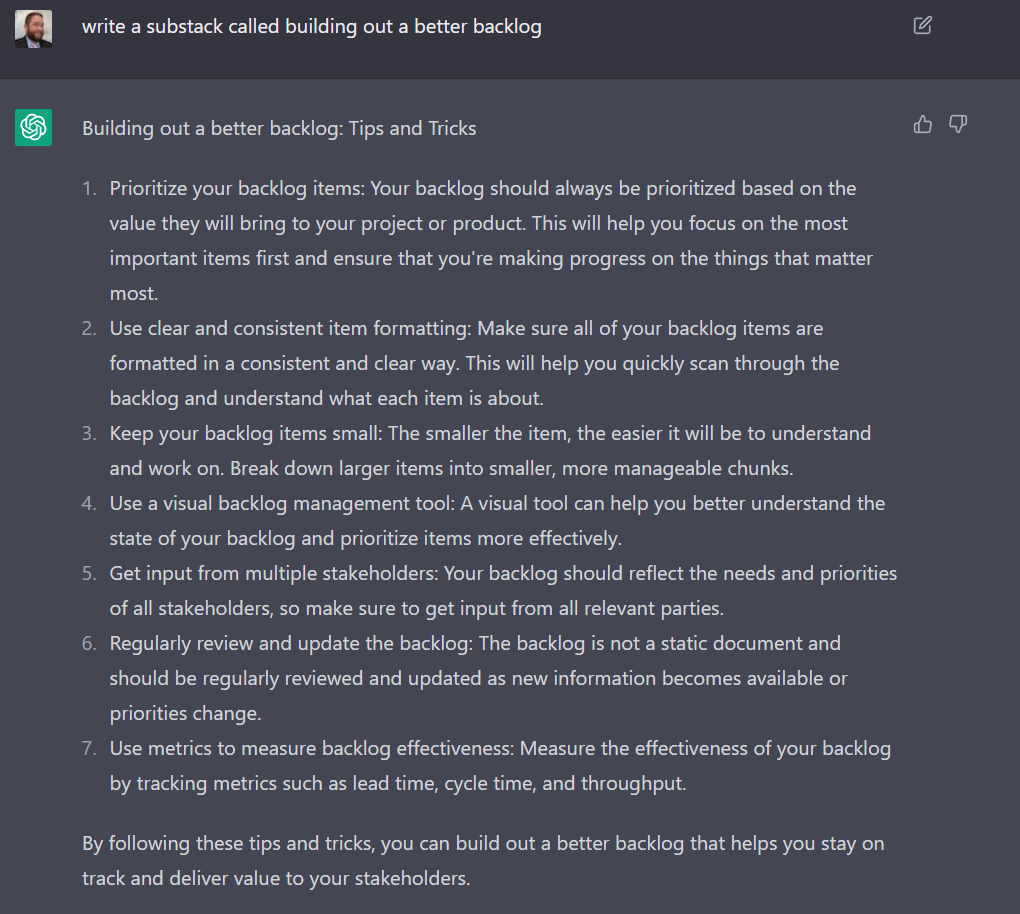We are now starting the third year journey of The Lindahl Letter on Substack. You can find the first two years worth of that effort combined into one manuscript right here or at any other online retailer:
Lindahl, N. (2023). The Lindahl letter: 104 Machine Learning Posts. Lulu Press, Inc. https://www.lulu.com/shop/nels-lindahl/the-lindahl-letter-104-machine-learning-posts/ebook/product-y244ep.html
During the course of this next year I’m probably going to write a book about how I would set up a modern polling company or to put it more bluntly, a book about how to monetize the sentiment measuring process in modern America. Part of that book writing effort could end up being a part of this series or it could end up being a stand alone set of content. Yes, that would mean 2023 would yield at least two books of exceptionally enjoyable reading content.
Overall, this new writing direction is one of those things that I’m going to really dig into throughout 2023. This would be inline with my research trajectory and current five year writing plan. My thoughts have just become a little more focused on what exactly I would produce within that writing window. Naturally, that is a good thing to start forming up before the writing project begins. I’m going to need to sit down and write up the topics to include within my literature review on this one. That part of this analysis will be key and has to be pretty darn good at this point.
Within that work effort I’m considering a few article titles to include in the writing plan:
“Sentiment pooling: Applied multimedia polling”
“Beyond the phone: A study of multimedia polling methods”
“When nobody answers: Evaluating the efficacy of phone based polling”
“Automated sentiment analysis compared to respondent based sentiment”
“Beyond the paywalls of academic journals: how information is being shared more broadly.”
We will see which of those ends up getting produced as either book chapters or true stand alone articles. This last week of planning and review was actually pretty productive. I have sketched out a writing plan for about the next 25 weeks. This new Substack series now has a backlog to work against as posts get put into a five week planning and review cycle. As we move from 2022 to 2023, my primary weekly Substack based content creation is going to shift a bit from ML related coverage to a stronger AI focus mixed with more content on modern polling methodologies.
You might be wondering why the combination of AI and sentiment analysis (polling methodologies) happens to be important to me as something to consider. As the intersection of technology and modernity occurs certain things will happen. Part of understanding civil society and figuring out what happens to civility during that intersection will require better active sentiment analysis. Critical thought and analysis into understanding the nature of measuring modern sentiment will be essential on a go forward basis based on the automation that AI will introduce throughout business.
I was looking at the proposed content from weeks 105 to 132 and realized that ethics as a part of the AI journey and process were left out as an early topic. I’m going to try to work in some evaluation of and references to academic works that consider ethics and responsible AI each week as we move forward.
As we close out here at the start of this series it would be only fitting to share what I do consider to be a foundational AI book to consider as key reference material. Probably the best book about AI you could grab is a textbook called, “Artificial Intelligence: A Modern Approach,” by Stuart Russell and Peter Norvig [1]. The current version appears to be the 4th edition [2]. You can get a copy on eBay or some other used book proprietary for a lot less than the academic asking price.
Some people prefer the findings of a certain alternative deep learning historian. I don’t want to deprive those readers of a link to what they might be looking for as fresh reading material. I am aware that Jürgen Schmidhuber has started writing some histories. It does present some alternative findings and different points of view. You can now access and read 75 pages of that content that have been recently published and are pretty easy to download from arXiv.
Schmidhuber, J. (2022). Annotated History of Modern AI and Deep Learning. arXiv preprint arXiv:2212.11279. https://arxiv.org/ftp/arxiv/papers/2212/2212.11279.pdf
Outside of those two works a book that would be more conversational and easier overall to absorb about where AI is at current would be this one:
Kissinger, H. A., Schmidt, E., & Huttenlocher, D. (2021). The age of AI: and our human future. Hachette UK.
This is the start of a series that will last 52 weeks. It should be an interesting journey.
What would ChatGPT create?
If you were wondering what ChatGPT from OpenAI would have generated with the same prompt, then you are in luck. I had that output generated over at https://chat.openai.com/chat by issuing a prompt.
Links and thoughts:
All-In Podcast “E110: 2023 Bestie Predictions!”
Top 5 Tweets of the week:





Footnotes:
[1] http://aima.cs.berkeley.edu/
What’s next for The Lindahl Letter?
Week 106: Code generating systems
Week 107: Highly cited AI papers
Week 108: Twitter as a company probably would not happen today
Week 109: Robots in the house
Week 110: Understanding knowledge graphs
If you enjoyed this content, then please take a moment and share it with a friend. If you are new to The Lindahl Letter, then please consider subscribing. New editions arrive every Friday. Thank you and enjoy the week ahead.
















Building out a better backlog